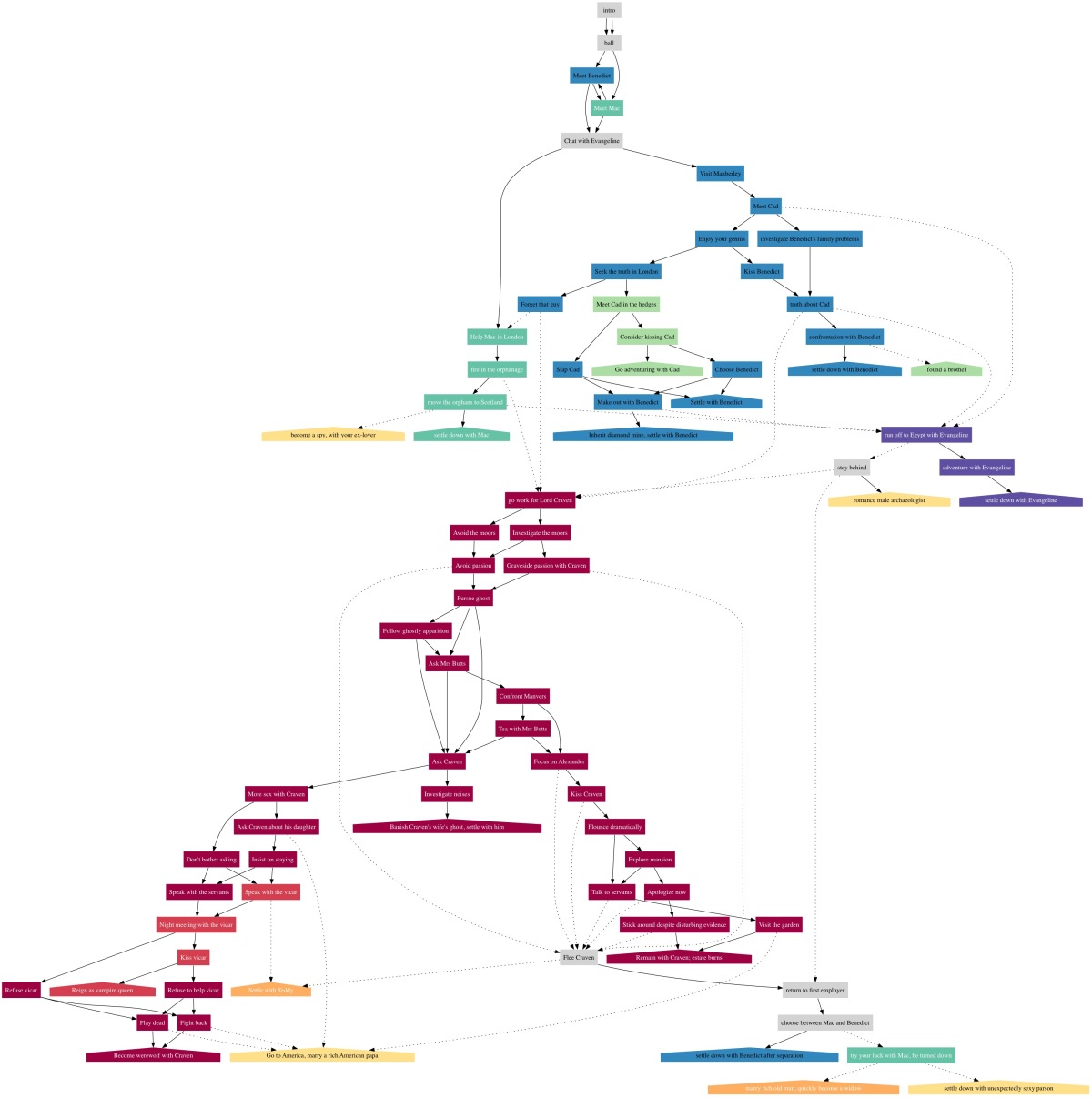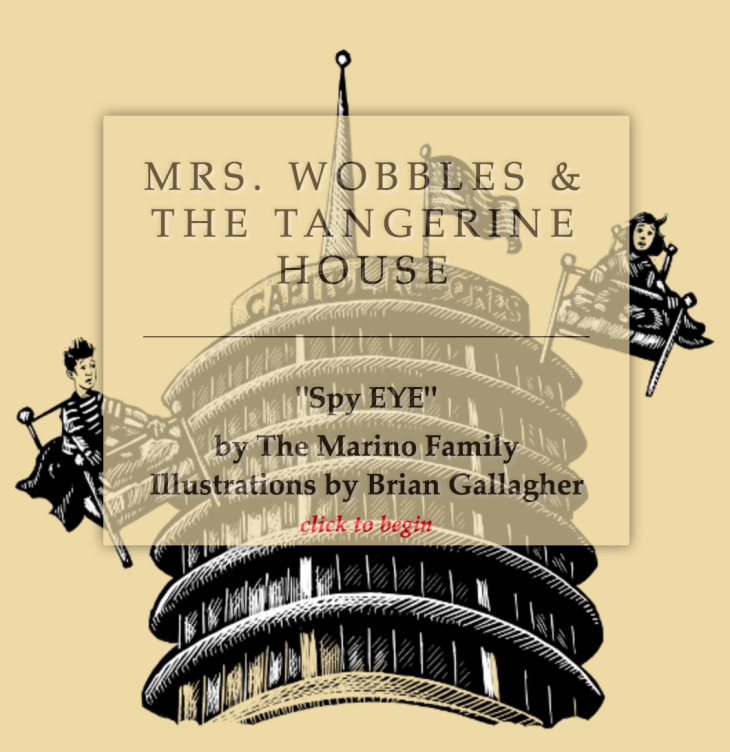Every four years, Victor Gijsbers puts together a list of the top 50 IF games of all time. To vote for this, one sends Victor a list of the 20 best games; those games that fall on the most “best” lists wind up on the Top 50 list. (You can participate, or see the spreadsheet that contains the current state of play, at the intfiction forum.)
I find this interesting, and also extremely hard to vote for, because I can think of many more than twenty games that have a reasonable claim to be “best” in some regard. So I have to pick some additional criteria in order to filter the thing down.
This year, I’ve deliberately skewed my list towards the criterion of maturity: games that represent what IF has become as a medium, that benefit from thought and careful play, and that communicate something about the human condition that is truthful, important, and hard to convey.
This is not the same thing as recency, but in the nature of things it does mean that the list skews a bit towards games that have come out in the past decade, and often towards works by authors who had already worked in the medium for a long time.
The list therefore omits a lot of games that I find delightful for their playfulness and polish: Lost Pig, Treasures of a Slaver’s Kingdom, Secret Agent Cinder, Brain Guzzlers from Beyond!, Magical Makeover, Midnight. Swordfight, several games by CEJ Pacian, and quite a lot of Ryan Veeder’s catalog.
It leaves out works that do a single thing perfectly — the telescopic narration of Lime Ergot, the linguistic mindbending of The Gostak, the jewel-beauty of The Moonlit Tower, the unfolding horror of My Father’s Long, Long Legs or the puzzle discipline of Suveh Nux. It skips others that impress through their extraordinary ambition and scope, from Tin Star or Blue Lacuna to 1893, Delusions and First Things First. It omits anything where I found myself writing too much extenuating text, any games I thought were great in one respect but got seriously in their own way in some other regard.
The list also skips many canonical works that helped define IF for the community: Zork, Deadline, Curses, Anchorhead, Spider and Web, Photopia, Shade, Rameses, Slouching Towards Bedlam. Even Jigsaw, which wrestles seriously with the weight and meaning of history, is also hampered by too-difficult puzzles and by limiting tropes of text adventures as they existed at the time. Influential and original, many of these games established what was possible in interactive fiction, and many of them are still very entertaining to play; others feel a little faded, documents of a different culture, as awkward to watch as a 90s sitcom. But if you want a list of this kind of canon, IFDB will supply several. I didn’t set out to omit anything because it was canonical, but I found that the criteria I set for this particular list tended to land on other nominees.
Several pieces, from Bloom to Shadow in the Cathedral, I left off the list because the narrative is not yet concluded. (I have hopes Bloom will be completed; I think we’re unlikely ever to get the end of the story of Shadow.)
Also not shown: works that meant a lot to me on a personal level for some reason, but that might not bear that same freight for someone else: Necrotic Drift, with its gut-punch ending about personal responsibility; Plundered Hearts, whose plottiness and NPC focus gave me the first ideas towards the type of IF I would one day want to write.
At the same time, there’s a lot of subjectivity here, and I did leave out some works, like Cape, or The Life (and Deaths) of Dr M, where excellent interaction design and writing served to explore some very significant theme, but where I just couldn’t quite agree with the conclusions; or the excellent Mama Possum, which is poignant and observant but didn’t leave me turning over the significance as much in my own mind, afterward.
Games that I contributed to myself, from Fallen London and Where the Water Tastes Like Wine to Cragne Manor, are also omitted, though I think the trend of anthology fiction with multiple authorial voices is an intensely interesting one and I should definitely write more about that. Later. Not in this list.
So. The list:
Continue reading “A Top 20 List of IF”


 My Lady’s Choosing
My Lady’s Choosing From
From  Known Unknowns
Known Unknowns